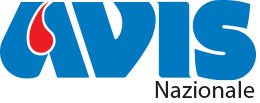Become a donor
Donating blood, the ethical principles
Anonymity: both donor and recipient's identities are protected by the privacy laws governing the Italian Transfusion System, its staff and voluntary associations. Freedom of choice: the decision to give blood is a free and conscious one. Non-profit: neither blood nor its hemocomponents can be used for profit; the value of a unit of blood/hemocomponent is established according to the costs involved with collecting, processing, grading and distributing blood and blood products. No fee: donating blood is unpaid and subject to no remuneration whatsoever. In Italy legal action may be taken against anyone donating blood in exchange for money under the terms of Law 219/2005, Art. 22. Hygiene: all the equipment used for taking blood is sterile and single-use only. Safety: this is a voluntary service, pre-donation screening and diagnostic tests ensure that the products used in transfusions are safe and that the donors are healthy. Quality: the respect for good practices as well as the numerous tests carried out on the materials being used guarantee the highest quality of transfusion products. Frequency: the periodic donation of blood is a guarantee of reliability and safety for the recipient, and it also ensures a constant supply of blood and blood products. Blood donors are monitored regularly by medical staff, have proper medical consultations and careful blood screening.
Blood and its components
Blood is a fluid that flows through the blood vessels, accounting for 8% of bodyweight. It is made up of liquid, plasma, and of corpuscles comprising red cells, white cells and platelets, known as 'hemocomponents.'
Why give blood
The need for blood and its components is constantly rising, because of an ageing population and the proliferation of many new treatments. Blood plays an indispensible part in many therapies, not just in emergency situations. You will not be informed as to who receives your blood, but you should know that your donation will be used in all sorts of different medical situations, from cancer patients to people suffering major haemorrhages through trauma and surgical interventions (including transplants and even childbirth).
Different forms of donation
The most common form of donation is whole blood. This enables all the blood components such as red cells, white cells and platelets to be collected at the same time, for later processing. Aferesis is a blood donation method in which the blood is passed through an apparatus that separates out the cells and returns the remainder to the donor through infusion. It is also possible for 2 components to be removed simultaneously, in which case the process is called multicomponent donation. Aferesis donation has the advantage of being able to harvest a larger number of the components sick people need; the products are longer-lasting than donated whole blood. This type of donation is usually provided by donors who have already given blood. Recent scientific studies have come up with other forms of donation, such as the gathering of stem cells from umbilical cords or bone marrow, for use in innovative treatments for many diseases.
4 steps to blood donation
1) Registration You will see a doctor who will check your identity documents, log your data into the Transfusion System database and help you fill in the pre-donation questionnaire.
2) Suitability Small blood samples will be taken every time you go to give blood; these will be tested before donation and you will have a confidential chat with a doctor and an evaluation of your suitability as a donor. Complete confidentiality will be observed, in full respect of both donor and recipient's privacy.
3) The procedure The blood and hemocomponents are obtained by trained and qualified health professionals, using a simple and safe procedure. All the equipment is single-use only, with no risk to the donor.
4) Post donation You will be offered a snack after giving blood. Don't forget that, if you are an employee, you are entitled to take a day off on full pay.
You will be allowed to give blood if:
- you are aged between 18 and 65;
- a doctor says you are a suitable donor;
- you weigh at least 50 Kg.
Where to donate blood
Blood can be donated at hospital transfusion centres or at blood transfusion units run by various associations. You can make an appointment yourself for all sorts of donation with a transfusion centre or through the blood donors' associations.
What happens to donated blood
Once blood has been taken, a standard procedure is followed to ensure that its passage from the donor to the recipient is completely safe. The hemocomponents are separated and checked, before being delivered to hospital wards on request; however, they will only be used once donor/recipient compatibility tests have been carried out. Each bag of donated blood and its relevant samples are logged and identified by a unique barcode so as to ensure full traceability (for 30 years) at every stage of the transfusion process, guaranteeing the safety of blood donation procedures.
(Traduzione a cura di Avis Nazionale)









